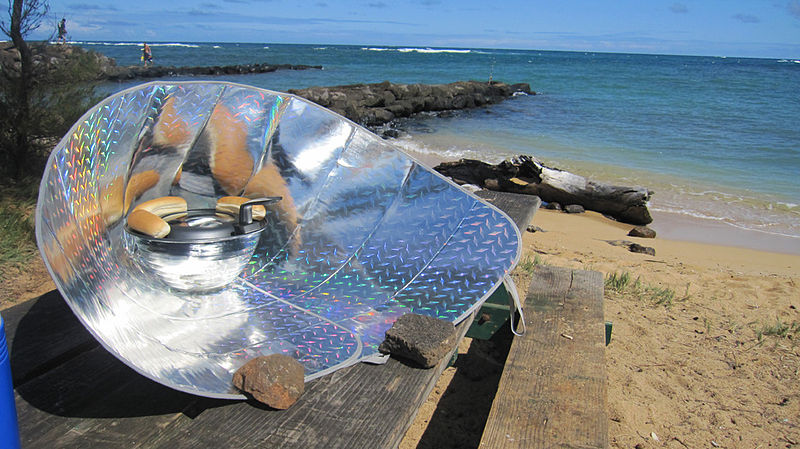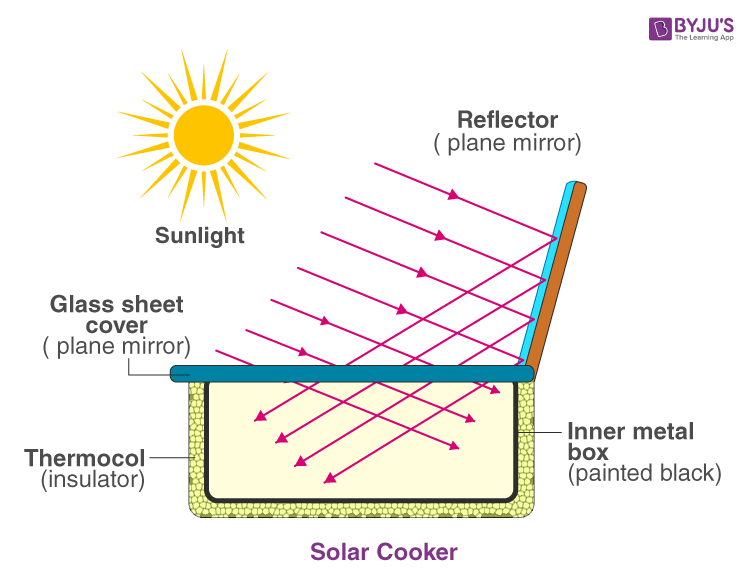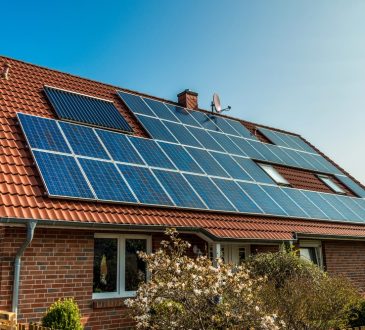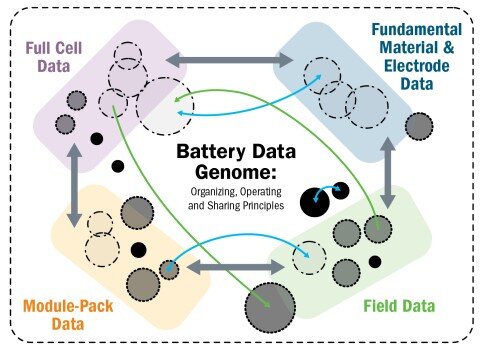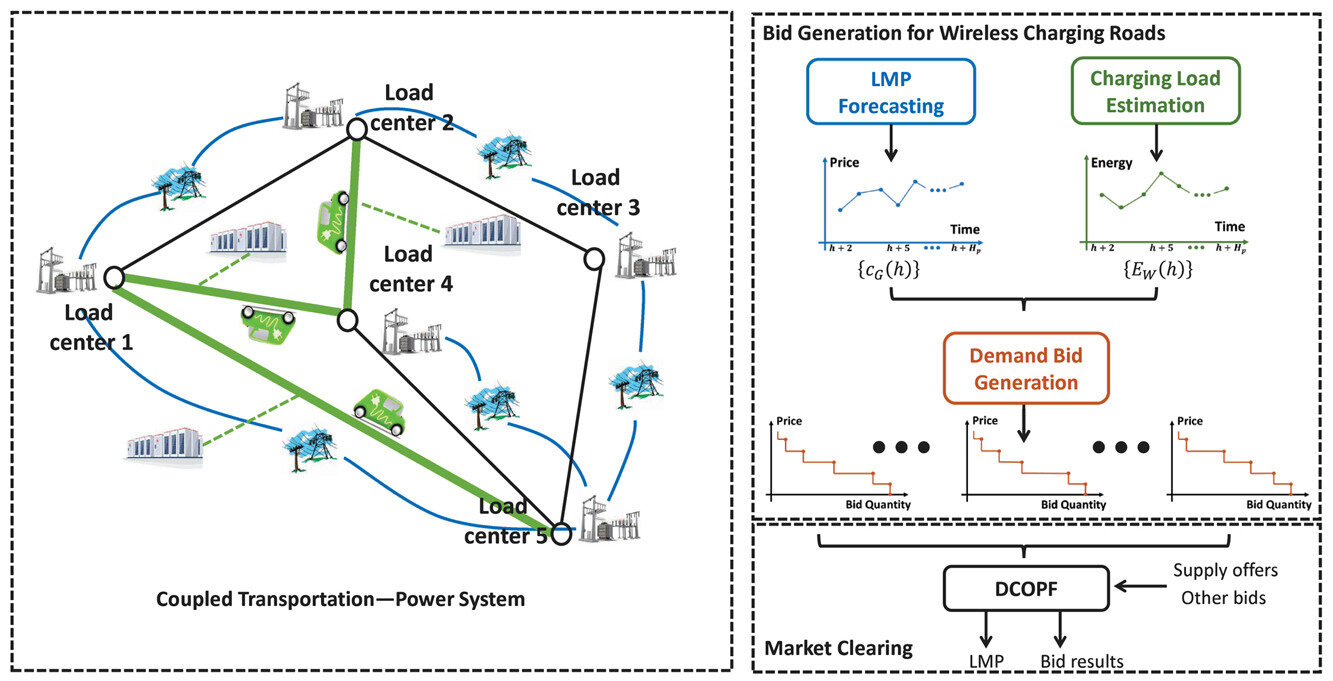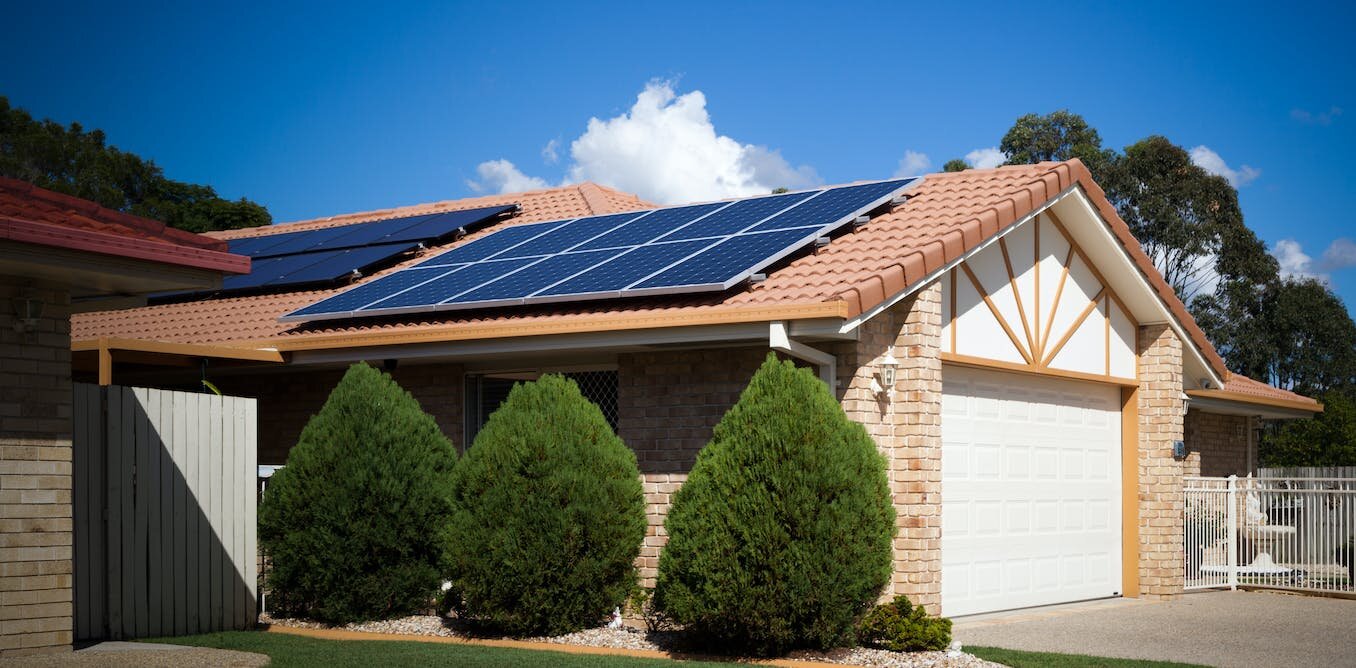
Environmental issues have become extremely urgent today due to human usage. Therefore, the current trend is to use energy from nature such as the sun, water and wind… In which solar energy is the most popular. Solar energy is a clean, renewable energy source that reduces deforestation, fossil fuel use and greenhouse gas emissions. What are the benefits of solar ovens? This article will have all the information you need.
Contents
What are Solar Ovens?
A solar oven, also known as a solar cooker, is a device capable of capturing energy from sunlight to concentrate heat and cook food without the need for other fuel sources. They are also a sustainable option for cooking in isolated rural communities and areas. Especially in developing countries, solar ovens are much preferred over other cooking methods. Solar ovens can be moved easily and installed in any sunny place at a very low cost.
How do Solar Ovens work?
The basic principle is that the solar oven will direct sunlight into the cooking space, where the heat is concentrated. The exact process varies by design, but all solar furnaces require highly reflective materials (such as mirrors, polished metal or aluminum foil) to be placed at specific angles. able to collect light. Solar ovens must retain heat well for stable cooking. This is usually done by separating the outside air from the air inside the oven or crucible.
Different types of Solar Ovens
Box cooker
The box-type solar cookers are the best-known models. It consists of a number of mirrors that focus their rays into an insulated box structure, with a transparent inner surface used to receive solar radiation. The sun’s rays hit the metal lining at the bottom, heating the metal plate. The temperature inside the box will then gradually increase, and the glass and insulation in the wall will prevent heat loss.
Hybrid cooker
This is the second most common type of furnace, which works like a thermos flask. This type of furnace has a double-layer glass wall. Inside the tube, there is a metal layer. When the sun’s rays are absorbed, the material heats up and the generated heat is trapped in the tube. Like a thermostat, it is an excellent insulator that helps prevent heat loss. The system is both easy to use and efficient.
Parabolic cooker
This stove will use a parabolic reflector to focus sunlight on the central point where the cooking box is located to generate high heat. The larger the parabola, the higher the heat generated. Parabolic solar furnaces are very efficient and they can reach temperatures up to 230 degrees and in just 10 minutes.
Panel cooker
This is the cheapest type of solar cooker. The panels, usually made of corrugated cardboard and coated with an inexpensive reflector such as aluminum foil or Mylar, focus the sun’s rays into a black crucible, which is held inside an insulated plastic bag. With this type of solar cooker, the cooking pot plays the main role. It will be responsible for capturing the sun’s rays and turning the light into heat. Now move to the next part to know some benefits of solar ovens.
The benefits of Solar Ovens
There are different reasons why people choose solar ovens, including their safety, sustainability, and reliability.
Benefit of economic
The energy that comes from the sun is free and inexhaustible. You don’t need to buy fuel whether it’s gas, electricity, coal or wood. Solar cookers are extremely cheap. You can spend hundreds or even thousands of dollars on a premium model, but a basic model can be purchased for just a few dozen dollars. Or you can make your own with a pizza box, aluminum foil, and saran wrap if you’re really on a tight budget. Since it uses free solar energy, you are saving money every time you use it compared to a traditional electric or gas oven.
Environmental friendliness
Referring to the benefits of solar ovens, it is impossible to ignore its environmental friendliness. We all depend on the earth’s limited fossil fuel resources. And the forests are shrinking and drying up for firewood. Cooking with the sun reduces dependence on these resources. Besides, the burning of wood, charcoal, fossil fuels and other fuels contributes to increasing global air pollution. Because solar cookers use the sun and you use less fuel, there is less waste to dispose of.
Health benefits
The use of solar furnaces not only reduces outside air pollution but also reduces indoor air pollution. The lungs and eyes are irritated and damaged by the smoke from cooking fires. With fewer open cooking flames and less smoke, the health of people around the globe can be improved. Because they do not require fire, they are considered safer than burning wood or other materials. This is also one of the benefits of solar ovens.
Easy to use
However, all the benefits of solar cookers mean nothing if they are too complicated for the average person to use. Fortunately, solar cookers are easy to use. Compared to a stove, grill or open flame where you have to watch, flip or stir what you are cooking often, with a solar oven, you simply chop ingredients, add seasonings to the pot, and cook. sun exposure for several hours without constant monitoring. In addition, unlike traditional stovetops, you can easily take them with you. Since solar cookers are usually portable, they make a great addition to any camping trip.
Some drawbacks of Solar Ovens
- Solar cooking does not function at night, on overcast days or on rainy days.
- The achievable furnace temperature will depend on the amount of insulation in the furnace.
- High winds not only affect the temperature of the furnace but can also cause stability problems.
- More suitable in warm, sunny climates.
- Cooking times are more difficult to predict when using a solar cooker, as a solar cooker or oven can reach different temperatures at different speeds based on the weather for that particular day.
Conclusion
That’s all about the Solar Ovens that we can offer you. From the concept, the types of stoves, how they work as well as the benefits of solar ovens. Solar cookers are a great, low-budget and healthy option for anyone looking for an alternative to a traditional stove. Whether you want to experiment or do your part to reduce your environmental impact, a solar cooker is something you should definitely invest in.
Read more:


